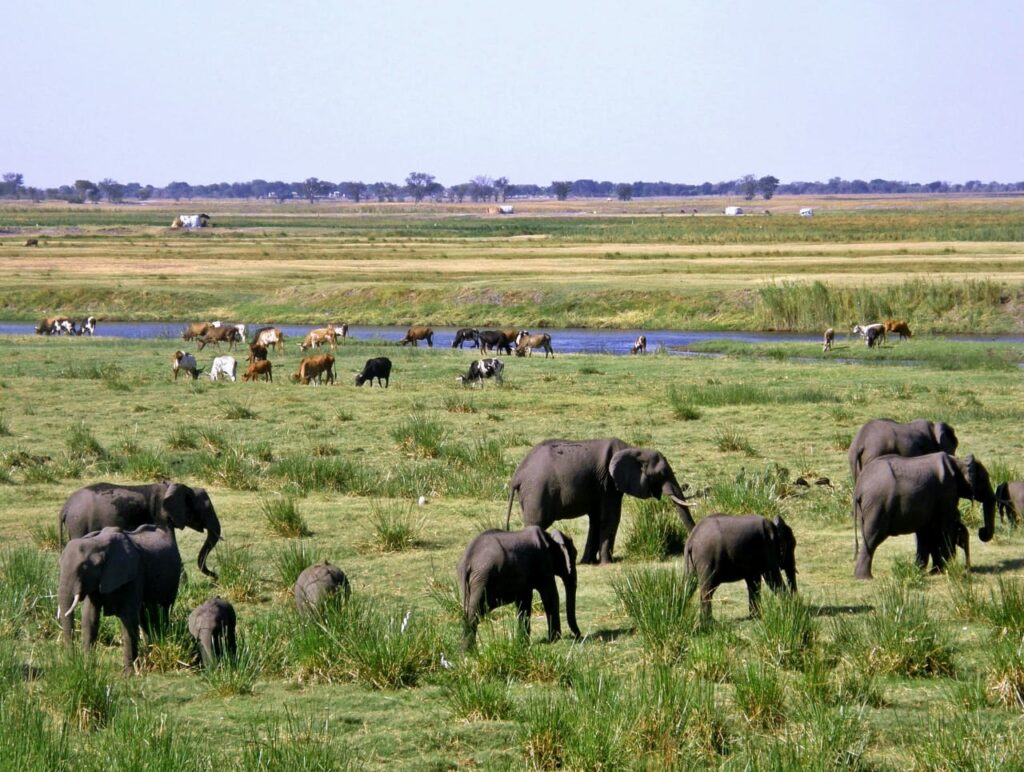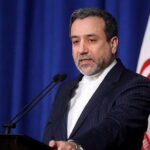Landmark Investment Announced at Africa Climate Week to Drive Sustainable Grazing and Climate Resilience Across the Continent

NAIROBI, Kenya, 7 September 2023 -/African Media Agency(AMA)/- Conservational International and Peace Parks Foundation (Peace Parks), in collaboration with Indigenous pastoralists, Civil Society Organisations, and the private sector have announced an ambitionous plan to restore 20 million hectares of degraded grasslands, savannah and shrublands at the Africa Climate Summit in Nairobi today. In the announcement, the two organizations commited an investment of USD $150 million to the effort, which will scale up the Herding for Health (H4H) model- a climate smart grazing approach for managing and restoring grasslands, savannah and shrublands across Africa. Funding has been made possible through generous support from the governments of Angola, Botswana, Kenya, Madagascar, Mozambique, South Africa, Zambia and Zimbabwe, partners and donors.
Addressing Ecosystem Degradation, Climate Change and Livelihoods
Grasslands, savannah and shrublands comprise over half of the Earth’s terrestrial surface, two-thirds (62%) of which are found across Africa. These ecosystems are integral to the livelihoods of an estionmated 50 million pastoralists and indirectly support at least 200 million people. However, approximately 700 million hectares of these ecosystems are degraded, threatening water catchment, carbon sequestration, and community livelihoods.
“This kind of collaboration is the best way to achieve goals and maintain the ecosystems that for 200,000 years have sustained life across the African continent,” said Suzanne Ngo-Eyok, Conservation International – African Senior Vice President and Chief Field Officer. “The carbon sequestration potential of Africa’s healthy grasslands, savannah and shrublands ecosystems is equivalent to the carbon sink value of the entire Amazon rainforest. Even though they store vast amounts of irrecoverable carbon, provide livelihood opportunities for hundreds of thousands of people and are culturally significant to pastoralist communities, current conservation efforts on these ecosystems are low. The investment by CI and Peace Parks aims to change that.”
Proven Strategies for Restoration and Resilience
The program will build on successful conservation strategies across transboundary landscapes in East and Southern Africa, most notably in the Kavango-Zambezi, the Great Limpopo, the Mara-Serenge� and Tsavo Mkomazi, to advance the wellbeing of communal livestock farmers; rebuild ecosystem resilience and sequester carbon in some of the world’s most climate vulnerable areas.
“Herding for Health is now operational across 2.5 million hectares in 16 locations and six countries throughout Southern Africa,” said Werner Myburgh, CEO at Peace Parks Foundation. “This programme contains all the elements to ensure conservation impact at scale which is at the heart of Peace Parks’ Strategy 2030 by enabling healthy landscapes, healthy livestock, healthy communities and co-existence between people and wildlife.”
Five-Year Goals and Monitoring
The initiative aims to achieve the following in the next five years:
- Expand the Herding 4 Health model to seven million Hectares in East and Southern Africa;
- Address ecosystem degradation and restore resilience through conservation stewardship and green job creation;
- Address social equity by unlocking finance opportunities for sustainable, wildlife-friendly grazing; and
- Support pastoralists to secure their livelihoods against climate impacts as well as the health of their herds and their families through a One Health approach.
- Establish mechanisms to ensure the long-term financial sustainability of Herding for Health sites and catalyse the uptake of the model across the continent.
A monitoring platform will be established to track ecosystem and socio-economic improvements, offering insights into degradation threats including fire, bush encroachment, invasive plant species and soil erosion. These data will inform future rangeland restoration initiatives across Africa.
Distributed by African Media Agency (AMA) on behalf of Peace Parks Foundation & Conservation International.
NOTES TO EDITORS:
Conservation International and Peace Parks Foundation first partnered on the Herding for Health Programme in 2019. Since its launch, the program has proven to be an effective and increasingly successful approach to promoting sustainable grazing practices that reverse degradation trends and enable wildlife-friendly livestock production. In some communites the program also unlocks market access, increasing income for communities and creatng green jobs.
About Conservation International: Conservation International protects nature for the benefit of humanity. Through science, policy, fieldwork and finance, we spotlight and secure the most important places in nature for the climate, for biodiversity and for people. With offices in 30 countries and projects in more than 100 countries, Conservation International partners with governments, companies, civil society, Indigenous peoples and local communities to help people and nature thrive together. Go to Conservation.org for more, and follow our work on Conservation News, Facebook, Twiter, TikTok, Instagram and YouTube.
About Peace Parks Foundation:
Peace Parks is a leading Africa-based non-profit conservation organisation that specialises in conservation at scale through the development of transboundary landscapes and the long-term management of key protected areas within these landscapes. Peace Parks currently supports five priority transboundary landscapes throughout southern Africa spanning over 66 million hectares and is also actively involved in the co-management of eight national parks and protected areas within these landscapes. Transboundary landscape conservation a holistic approach to ecosystems-based conservation and the co-existence between people and nature. LinkedIn Facebook Twiter Instagram YouTube
Media Contacts:
Seif Hamisi
Conservation International Email: shamisi@conservation.org Telephone: +254 722 778 483
François Rogers
Peace Parks Foundation Email: frogers@peaceparks.org Telephone: +44 (0) 7 585 707 220
The post Conservation International and Peace Parks Foundation Commit USD $150 million to Restore 20 Million Hectares Across African Grasslands, Savannahs and Bushlands appeared first on African Media Agency.





